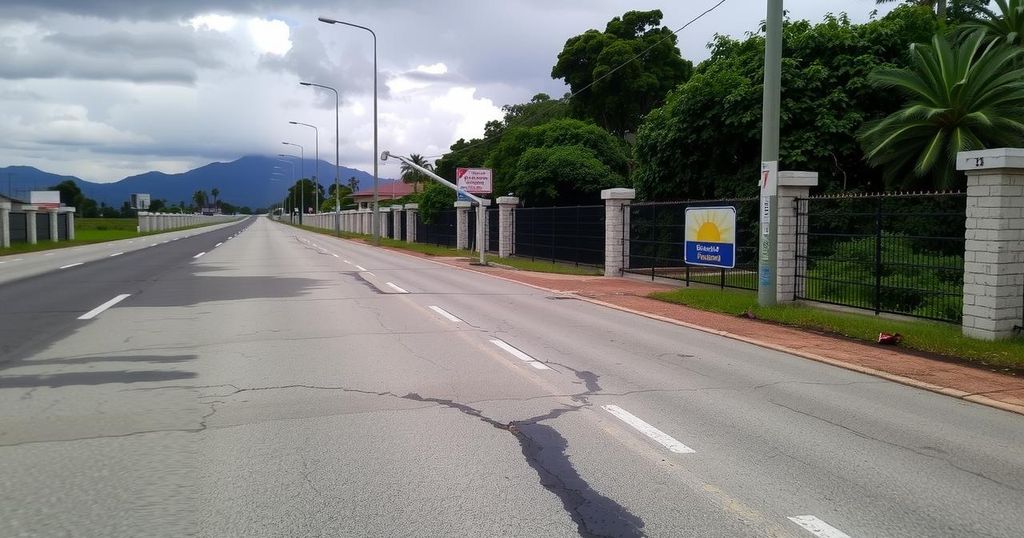Venezuela’s President Nicolas Maduro is set to be sworn in for a third term amid protests led by opposition leader Maria Corina Machado. The Colombian border has been closed, and international condemnation of Maduro’s government continues, echoing concerns about political repression and electoral fraud.
Venezuela’s President Nicolas Maduro is poised to take the oath of office for his third term amidst widespread protests and international condemnation. On the eve of the ceremony, thousands rallied in Caracas against his presidency, igniting tensions as opposition leader Maria Corina Machado emerged from hiding to lead the demonstration. Despite her brief detention, which the government denied, Machado’s rally prompted criticism of Maduro’s alleged electoral fraud and repression of dissent.
In a show of solidarity with Machado, Colombia’s leftist President Gustavo Petro condemned the “systematic harassment” she faced during the protests. In response to purported threats to national stability, Governor Freddy Bernal announced the closure of the Colombia-Venezuela border, which is scheduled to remain shut until Monday. Additionally, U.S. President-elect Donald Trump publicly recognized Machado and her fellow candidate Edmundo Gonzalez Urrutia as “freedom fighters” and insisted on their safety amid the ongoing turmoil.
As Maduro prepares for his inauguration, reports indicate an escalating crackdown on opposition figures, including arrests of presidential candidates and civil society leaders. The United Nations raised concerns regarding arbitrary detentions and intimidation tactics employed by the Maduro regime, following widespread protests that witnessed over 2,400 arrests and numerous casualties.
Maduro’s administration has historically depended on the military and paramilitary groups to maintain order and suppress dissent. Despite being backed by foreign allies such as Russia and Cuba, Maduro’s grip on power is questioned, especially as opposition figures continue to rally for democratic governance. Meanwhile, Gonzalez Urrutia’s efforts to return to Venezuela face significant peril, as threats against him multiply and bounty posters are circulated across Caracas.
Essentially, Maduro’s continued leadership, rooted in a contested electoral mandate, raises critical questions about the future of democracy and human rights in Venezuela. With mounting internal pressures and growing international scrutiny, this period marks a pivotal moment that could redefine the nation’s political landscape.
The situation in Venezuela has been tumultuous since Nicolas Maduro assumed the presidency in 2013 after the death of his predecessor, Hugo Chavez. Maduro’s presidency has been characterized by allegations of electoral fraud, human rights abuses, and severe economic decline. His administration’s repression of opposition has sparked widespread protests and criticism from both domestic and international communities. The recent events surrounding Machado’s protests illustrate the ongoing struggle for democratic governance and the challenges faced by opposition leaders.
In summary, President Nicolas Maduro’s impending swearing-in is occurring against a backdrop of protests and renewed opposition against his administration. As international observers condemn his repressive tactics, the Venezuelan landscape remains fraught with tensions between government control and the push for democratic reforms. The situation highlights significant humanitarian concerns and the complexities faced by the Venezuelan people in their quest for political stability and justice.
Original Source: www.lemonde.fr






